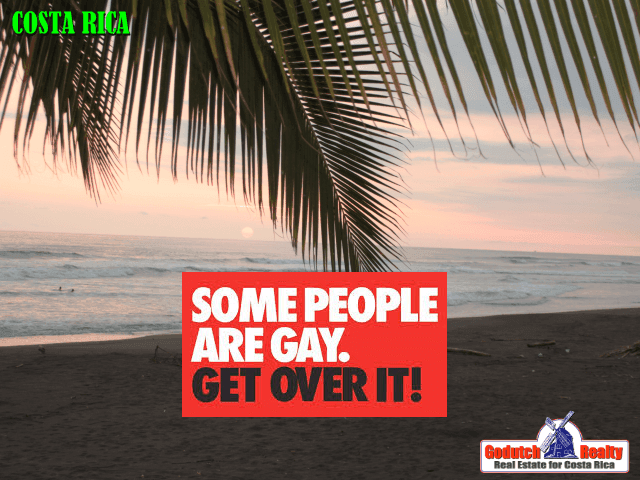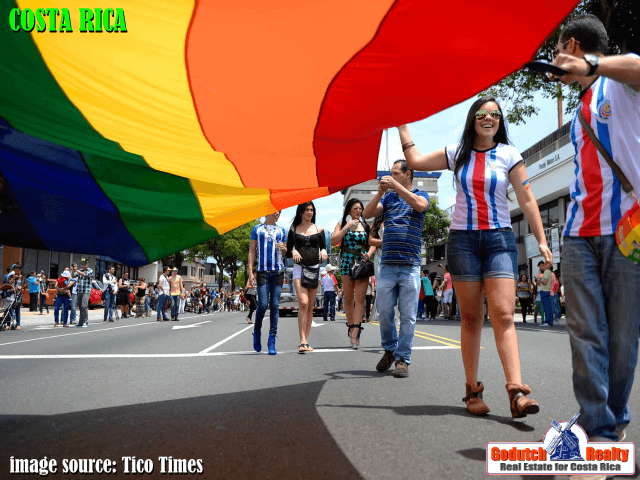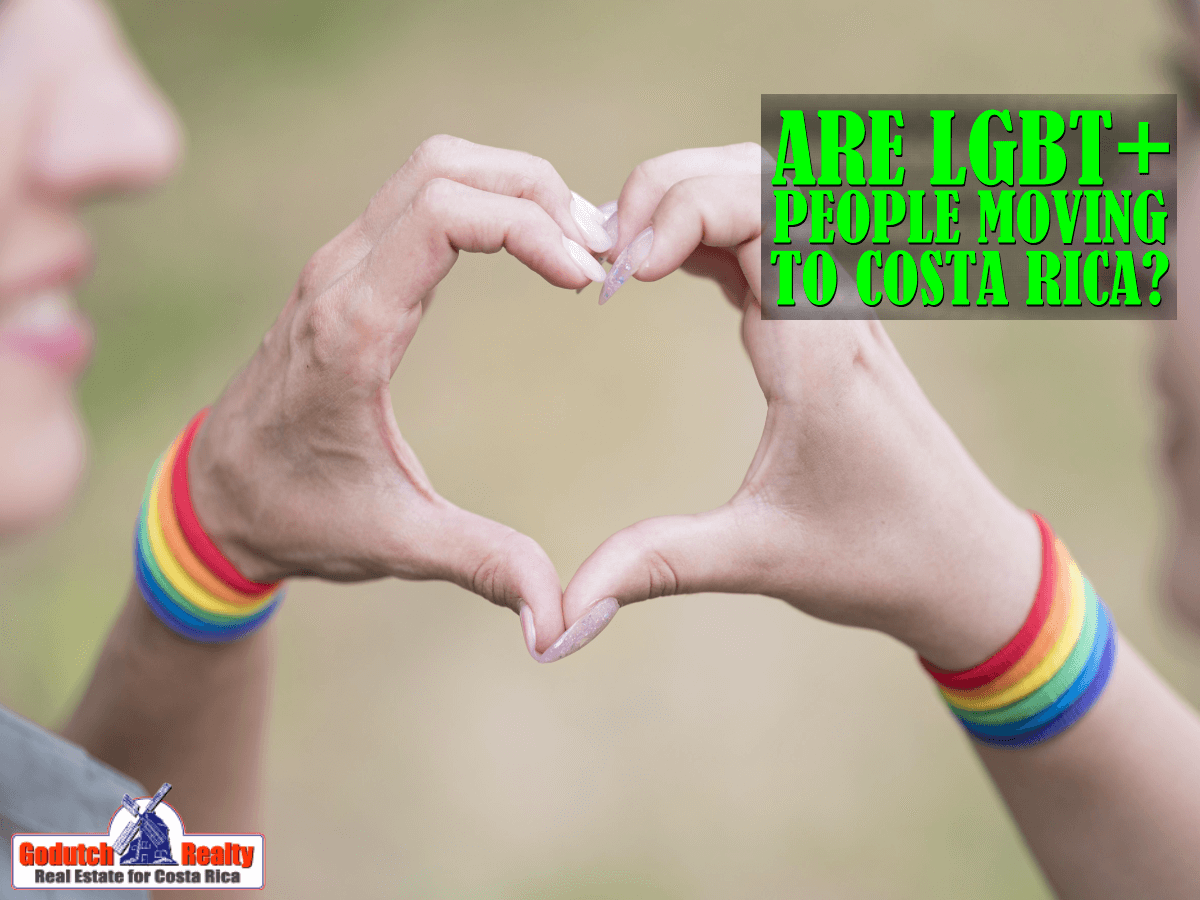Estimated Reading time: 5 Minutes
Because I grew up in Holland, with a more open mindset than others, it is easy to talk about the topic, and often, future expats ask if LGBTQ+ people are moving to Costa Rica. The answer is yes. The LGBTQ crowd is quite large and relatively well-accepted in Paradise. Only the very religious seem to be against it.
Costa Rica has made significant strides in LGBTQ+ rights in recent years. However, the topic of openly sexual gay behavior remains complex, reflecting the broader tensions between traditional values and progressive social movements. This essay explores the cultural, legal, and societal factors that influence perceptions of openly sexual gay behavior in Costa Rica, highlighting both progress and ongoing challenges.
I wrote this article in 2012, and now that the future president of the USA seems to have problems with gender and other sexual behavior, I thought it was time to do an update.

When I was a kid, there was a gay kid on our block, and at the time, nobody would talk about it. Some years later, he was the first person on national TV with his partner, talking about his experiences of coming out of the closet. Jeez, I knew when I was 12 years old that he was gay. His mom and dad were very religious, poor guys; he suffered a lot, and his mom and dad probably did, too. That was like in 1972.
A macho community
When I moved to Costa Rica, I used to go to Ojo de Agua once in a while, a large public swimming pool near the International Airport Juan Santamaría. A gay man walked around the pool, and hundreds of people whistled at him. Costa Rica was a very macho community back in 1980. Today, Costa Rica is still quite macho, and the Catholic and Cristian Churches are not helping much.
The church, of course, disapproves, and they still have a lot of power in Latin American countries. Same-sex marriage became legal here on 26 May 2020.
Milestone
One of the most significant milestones for LGBTQ+ rights in Costa Rica was the legalization of same-sex marriage in May 2020, making it the first Central American country to achieve this. This landmark decision signaled a broader acceptance of LGBTQ+ individuals and their rights, including the freedom to express their sexuality openly.
With legal protections, LGBTQ+ visibility has increased, particularly in urban centers like San José. Pride parades and LGBTQ+ events attract thousands of participants and allies, showcasing a vibrant and diverse community. In these spaces, openly sexual gay behavior, such as public displays of affection or flamboyant performances, is celebrated as a form of self-expression and resistance against past oppression.
Live and let live
Today’s blog is not about the right or wrong of being gay; it is about being able to live in Costa Rica when you are Gay or Lesbian. I hope this topic doesn’t bother any of my readers. In my opinion, it shouldn’t. Live and let live. I am straight, but it doesn’t bother me at all to be around gay people. I have had many gay and lesbian clients over the years, men and women alike. There are quite a few gay people on my newsletter list; they are outstanding clients and very loyal to the real estate agent they decide to stick with.
70 homes for sale
Over 20 years ago, I had adorable clients (by the way, all my clients are nice), including two lesbian women. We looked at about 70 homes for sale, but they stuck with me, and I with them. The problem was that they didn’t like bathroom tiles with flowers, and yes, you guessed it right. Almost every home had flowery bathroom tiles in those days.
They finally decided to buy a beautiful home in Curridabat and remodel the bathrooms. When my wife and I arrived at their housewarming party, though I had warned my wife, she almost got a heart attack, seeing that everyone in the room was gay. Being Costa Rican, being at a lesbian party was a first experience for her. After an hour or so, she told me she was no longer uncomfortable.
Today, she has quite a few gay friends as she found out they are not from a different planet; they’re not animals, but they are just a bit different than straight people. She just never had contact with LBGT, and it had always made her feel uncomfortable.

Openly sexual behavior
Despite legal advances and growing acceptance, openly sexual gay behavior remains controversial in some parts of Costa Rican society. Traditional values, deeply rooted in religion, continue to influence public attitudes. In rural areas, where conservative norms prevail, LGBTQ+ individuals often face discrimination or social ostracism. Public displays of same-sex affection, especially those perceived as overtly sexual, may still provoke discomfort or even hostility.
The gay community
I don’t know how it feels to be gay in a straight world; I do see that my wife’s friends, as do my clients, feel very comfortable talking to me because it’s not an issue to me.
For those gay people who want to move to Costa Rica, there are many gay bars and discos and activities for the gay community. You can walk the streets without being whistled at. I think that generally, the local straight people accept the fact that gay people are people, too.
If you are LGBTQ+ and looking to move to Costa Rica, then feel free to comment on this blog or contact me for a Zoom appointment.























